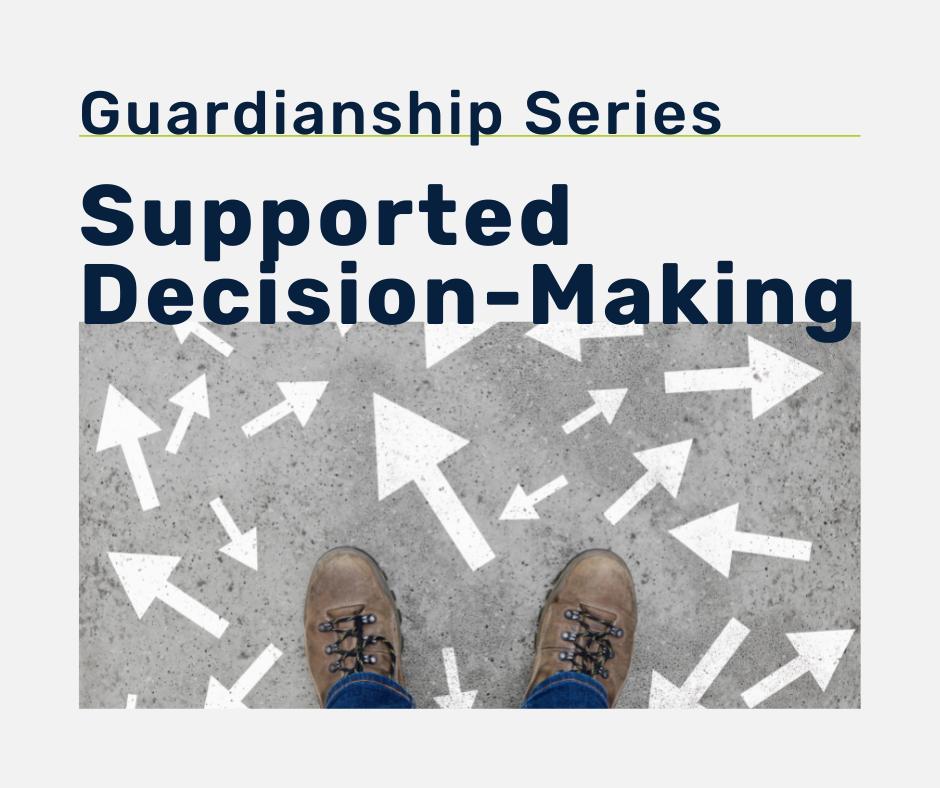Supported decision-making is often presented as an alternative to guardianship. Though this framework can be used as an alternative to guardianship, it can still be valuable while someone has a guardian.
Put simply, supported decision-making is defined as a process through “which people with disabilities use friends, family members, and professionals to help them understand the situations and choices they face, so they make their own decisions (Blank & Martinis, 2015).”
Supported decision-making uses natural supports to help an individual make decisions about their lives. Ideally, the use of supported decision-making replaces the need for guardianship.
Supported decision-making uses the same concepts that neurotypical adults use to make decisions. It encourages asking for help much in the same way that anyone might.
We might ask our friend who is a nurse for help understanding a medical decision or our aunt who is a banker with some investment questions. We ask identified people in our life who are unpaid, natural supports, for advice in making decisions.
Sometimes we make good decisions, and others not so good decisions. As humans we learn, grow, and hopefully don’t make the same mistakes in the future.
Supported decision-making is intentionally creating a network of support and a process where an individual asks people to weigh in on decisions.
Supported decision-making is intentionally creating a network of support and a process where an individual asks people to weigh in on decisions. Ultimately the individual still makes the choice, but this process can remove some of the anxiety and uncertainty around making a choice.
One recent development in the area of supported decision-making in Colorado was the passage of Supported Decision-making agreements. This bill was signed into law by the Governor and formalized the use and recognition of supported decision-making agreements in statute.
In the bill, a supported decision-making agreement empowers the individual to create a supportive community to help with decisions and choices, without making them on the individual’s behalf. These agreements can be a great alternative to guardianship. We’ll explore more alternatives to guardianship in the next installment of this series.
To learn more:
The Arc of Aurora/Think+Change: Supporting Self Determination
Colorado Developmental Disability Council: Supported Decision-Making

